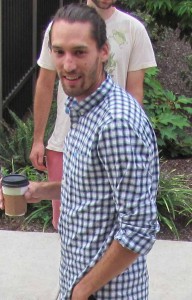Free zone still benefits downtown Eugene
Editorial response from The Register-Guard
(to article ‘Council rethinks free parking’)
Published:
Downtown Eugene is healthier than it has been in years, but it’s not so healthy that the shops, restaurants and services in the city’s core can afford to chase people away. That would be the result of reinstalling parking meters next to 288 parking spaces downtown where people can currently park for free. The Eugene City Council should extend the free parking program, giving the downtown area’s clear trend toward revitalization more time to take firm root.
On Monday the council discussed allowing the free parking program to expire next Jan. 15 after a four-year run. The primary motive would be financial — putting meters back in the free-parking zone would generate an estimated $290,000 a year for a city that is facing acute budgetary pressures. The zone extends from Seventh to 11th avenues between Willamette and Lincoln streets.
Before the free-parking program, complaints about the expense and aggravation of parking downtown were regular features of The Register-Guard’s letters-to-the-editor columns. The most common story had to do with finding a parking ticket because the time on a meter had expired a few minutes before the driver had returned. Almost invariably, the complaints would end with a vow to shop at a mall next time.
Those complaints have all but disappeared, and their absence has a value that’s hard to calculate. Clearly, the free parking program has eliminated one common and enduring cause of ill-will. For downtown merchants, it must have felt as though a long-lasting headache has suddenly cleared. The number of people spending time and money in downtown Eugene is increasing, but those who do business in the area still need every potential customer they can get.
It’s clear that people will pay to park in and around downtown — there are more parking spaces with meters outside the zone than there are free spaces inside it, and on most days there’s a charge for parking in one of the city’s parking garages. Knowing that there’s a possibility of finding a free on-street parking spot, however, lessens the sting of having to feed the meter a few blocks away. And even though it’s surrounded by paid parking, the free parking zone sends a subtle but important message: Downtown Eugene intends to welcome visitors, not milk them for every quarter in their pockets.
San Francisco has no downtown free parking zone. Neither does Portland. People complain about the cost of parking in both cities — but they go to their downtowns anyway. They go because they want to, or because they must. Eugene hasn’t reached the point where the desire to go downtown is so strong, or the need to go is so great, that parking spaces would be full whether they’re metered or not.
That day may be coming soon, as the number of people living in and around downtown rises and the mix of services and retail outlets broadens. At that point, meters would become less important as a means of raising revenue than as a way to ensure turnover in short-term parking spaces.
But for now, the free parking program helps reinforce the other investments Eugene has made and is making downtown — investments that include various types of subsidies for developers whose tenants depend on a steady stream of visitors to the area. It’s important that those visitors feel welcome. The city hasn’t reached the point where it can afford to undercut that message by imposing a cost and an inconvenience, even a minor one.
Community Planning Workshop Report:
>> SEARCHING FOR A SPACE: An Analysis of Eugene’s Free Parking Policy

